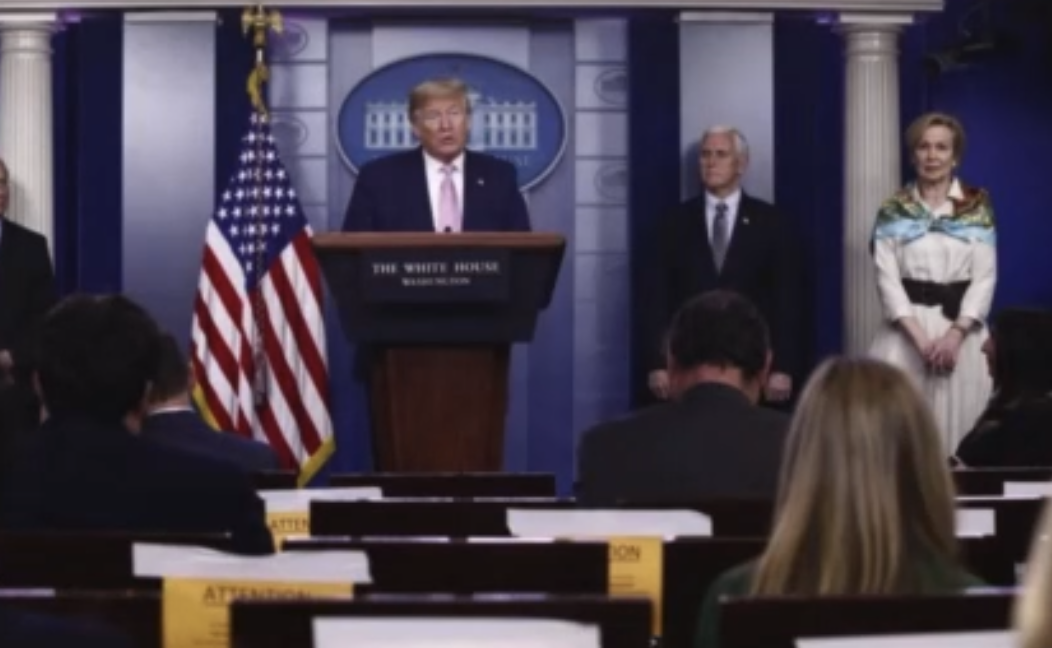Strategic Appointment Marks Turning Point in U.S. National Security Leadership
A major appointment within the nation’s security hierarchy is making waves across Washington, signaling what intelligence insiders are calling a defining moment in the administration’s evolving approach to counterterrorism and domestic security. The move underscores a broader realignment in how the United States intends to confront modern threats amid an increasingly complex and unpredictable global landscape.
Director of National Intelligence Tulsi Gabbard announced Thursday the appointment of Joe Kent as the new head of the National Counterterrorism Center (NCTC)—a decision that reflects the administration’s intent to reshape key components of America’s intelligence and counterterrorism strategy. Beyond its immediate personnel implications, the appointment represents a deeper shift in strategic priorities, elevating a leader whose career embodies the fusion of battlefield experience and intelligence acumen.
A Decorated Soldier Steps Into a Critical Role
Kent, 45, brings more than two decades of combined military and intelligence experience to one of the most sensitive leadership posts in the federal government. A former Army Ranger and CIA paramilitary officer, he has operated in some of the world’s most volatile theaters, from Iraq to undisclosed intelligence missions that tested both his tactical precision and strategic judgment.
Over the course of eleven combat deployments, Kent honed his expertise in counterterrorism, counterinsurgency, and urban warfare—skills forged amid the height of conflict in Iraq, where American forces grappled with insurgent networks and asymmetric threats. His transition to the CIA in 2018 marked a natural continuation of that career trajectory, extending his operational reach from the battlefield to the shadow world of intelligence operations.
“Joe Kent represents the kind of field-tested leadership we need in this moment,” one senior intelligence official said privately, noting that his mix of hands-on combat experience and intelligence insight gives him an unusually comprehensive understanding of the nation’s counterterrorism apparatus.
From Battlefield Loss to Political Resolve
Kent’s public life—and eventual rise to national prominence—was shaped by profound personal loss. His wife, Shannon Kent, a Navy cryptologic technician and fellow special operations veteran, was killed in a 2019 suicide bombing in Syria. Her death marked a turning point for Kent, transforming his perspective on U.S. foreign policy and driving him to seek a greater voice in shaping the nation’s security decisions.
“The loss of Shannon—and so many brothers and sisters-in-arms—reminded me what’s at stake in every policy decision,” Kent said in a 2021 interview. “It’s not abstract. It’s life and death for the people on the ground.”
His personal tragedy resonated deeply within the military and intelligence communities, highlighting the emotional and human costs borne by families at the front lines of America’s protracted counterterrorism efforts. It also propelled him toward politics, where he hoped to bridge the gap between operational realities and policy deliberations in Washington.
Political Ambition Meets Public Service
In 2021, Kent launched a high-profile campaign for Washington’s 3rd Congressional District, framing his bid as an effort to bring “real-world counterterrorism experience” into the legislative arena. His message of accountability, national strength, and reform resonated strongly with grassroots conservatives, propelling him to victory in the Republican primary.
Despite his narrow general-election loss to Democratic Rep. Marie Gluesenkamp Perez, Kent’s campaign drew national attention and established him as a rising figure within the GOP’s national security wing. His strong performance in a competitive district—and his continued engagement in policy discussions following the race—cemented his standing as a credible voice on defense and intelligence issues.
That visibility, combined with his field experience and analytical depth, helped pave the way for his return to government—this time in a position shaping America’s counterterrorism architecture from the inside.
The NCTC: Coordinating the Nation’s Counterterror Effort
The National Counterterrorism Center, formed in the aftermath of the 9/11 attacks, remains one of the cornerstone institutions in U.S. intelligence. Tasked with integrating data from across agencies, the NCTC acts as the central hub for analyzing threats and coordinating national responses.
Its mandate spans both domestic and international operations, bridging gaps between the CIA, FBI, Department of Defense, and Department of Homeland Security. The Center’s mission—to prevent terrorist attacks by ensuring seamless intelligence sharing—has grown even more complex as the definition of terrorism itself has evolved.
Today’s challenges extend beyond the reach of traditional extremist networks. The rise of domestic radicalization, cyber-enabled terrorism, and criminal-terrorist alliances demands innovative strategies and flexible leadership.
Kent’s appointment, analysts say, reflects a recognition that the next phase of counterterrorism requires leaders who understand both the granular realities of the battlefield and the high-level coordination required to preempt emerging threats.
A Leadership Choice for a New Era
For Gabbard and the administration, Kent’s elevation is more than a personnel move—it’s a statement of direction. His blend of military grit, intelligence proficiency, and personal sacrifice embodies the qualities the administration appears eager to restore within the intelligence community’s upper ranks.
As the global threat environment grows more diffuse, the appointment suggests a renewed emphasis on operational experience over bureaucratic tenure, and on decisive leadership over committee-driven caution.
In assuming the helm of the NCTC, Joe Kent now faces one of the most consequential mandates in U.S. national security: protecting the nation from threats both foreign and domestic, while ensuring that the lessons learned from two decades of war inform—not haunt—the next generation of counterterrorism policy.

